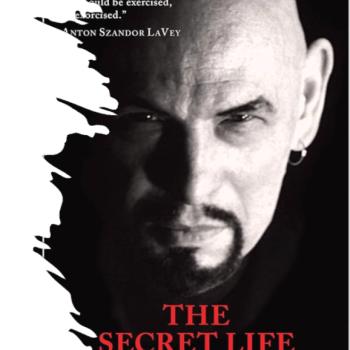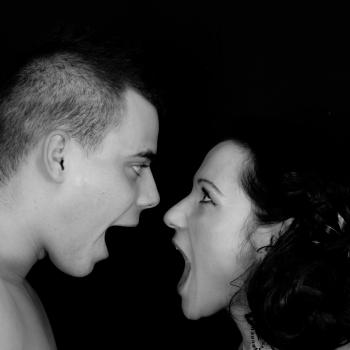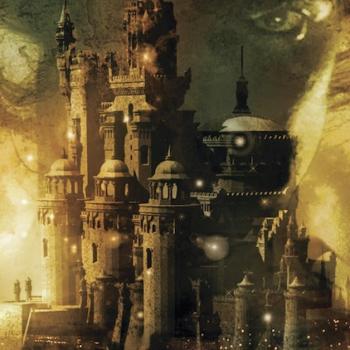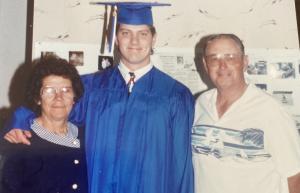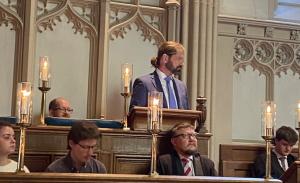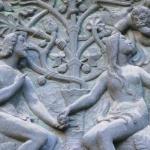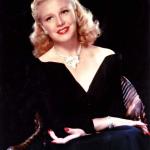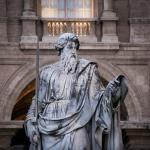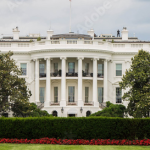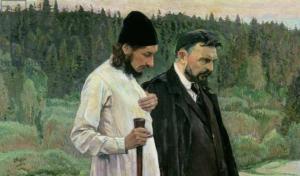
I’ve written before about what I think is disastrous in contemporary Russian Orthodox ecclesiology, or the theological identify of the church.
Here I want to note a moment in the life of that church that I find to be full of remarkable possibility for all Christians.
A Lost Ecclesiological Dream
I’ve also written before about Sergei Bulgakov, who helped me title this Patheos column. He and his mentor and friend Pavel Florensky were writing during a period of unprecedented ecclesiological reform. Russia had lost its dream to be the eternal Rome, where the Tsar and the Patriarch would rule a peaceable kingdom until Christ’s return. The Tsar’s reign was in deep trouble, and so the church was in an identity crisis.
Some of their contemporaries responded to the crisis by saying it was time to throw the church out as an institution whose usefulness was exhausted. Others reacted with a defensive conservatism of the old ways. Florensky and Bulgakov took the revolutionary moment as a unique opportunity to ask what church might mean. More specifically, they asked what meaning could emerge for people who gather in a local church, listen to the gospel, say their prayers, and receive the sacraments.
There’s a famous portrait of the two of them in what is likely this very discussion. They didn’t have that many conversations, actually: Florensky’s ground-breaking book came out in 1912, Bulgakov’s in 1916. By 1922 Bulgakov was exiled to Europe, never to return, and in 1933 Florensky was interned in the gulag, eventually to be shot during Stalin’s terror. Needless to say, their vision for parish reform never got a chance to catch fire.
Ecclesiality, or Believing in a Living Way
But it still could.
Bulgakov’s book opens with his own story about leaving seminary an atheist (as did Stalin before him!). Later, though, he began to ask “what if” about the stories of the gospel and the liturgical hymns he knew from childhood. Bulgakov calls this “coming to believe in a living way.” He comes to think of himself as a unique site where the very story he’s hearing and chanting at church is being revealed. Through conversation and contemplation, he begins to ask a foundational question. What if his life, with all its trials and uncertainties, is hid with God in Christ? This is, I think, the whole question, the only question, for any church to ask.
Florensky’s helpful word for this dynamic is “ecclesiality.” He’s read lots of Hegel, and while I’ll spare you that particular tunnel, the upshot is simple enough to see. We discover truth together only by passing through truth’s own dissonance. This is not just because suffering is a reality in our world. At a deeper level, it’s because the triune God has never before been revealed in my particular form of life. How is God trying to happen here? Lots of missteps, lots of ambiguity. But as my friend and pastor Miles recently put it for our church, “complexity and ambiguity can break us open to nuance and creativity.”
Advancing Diagonally
This is what I’m trying to get at with my language of “diagonal advance.” My life is a revelation of God, and yet I only come to know the God that my life is revealing by living my life —and living it surrounded by trusted witnesses who can help me discern the revelation. My way forward is also God’s way “downward.” We meet on the road that slants down from heaven to earth and also up from earth to heaven.
“Religion,” Bulgakov says, is “the lived experience of God.” God is the only truth at the heart of all things, and yet I’m going to need a community of lived experiencers, gathered around scripture and liturgy, if I am going to make the discovery. As this happens, “the world loses its unconditional quality,” and I begin to see apocalypse everywhere.
Not just in pleasant walks and talks with a friend, though. God is also the deep pattern in our sufferings. This is the most difficult of Christian teachings.
For our Russian theologians, the way of the gospel took them through internment and exile. Lenin’s paranoia and Stalin’s mania kept Bulgakov from ever returning to see his infant son’s grave. Florensky never saw his wife or his children after his arrest. Both lived these losses as painful tragedies… and they lived them as revelations of the paschal mystery that itself reveals the heart of God. In that diagonal sense, we haven’t actually met the crucified Christ until our sufferings reveal him. I encounter the cross as a lived invitation only as I put one foot in front of the other through trials and suffering. I complete with my own body what is lacking in the sufferings of X, as Paul says.
The Deep What If?
That’s the deep “what if” of ecclesiality that these two theologians have helped me contemplate. What if our lives are hid with God in Christ, and those who gather for worship can offer the gift of helping us see and name and know this?
What if that is true, right now, for you?


